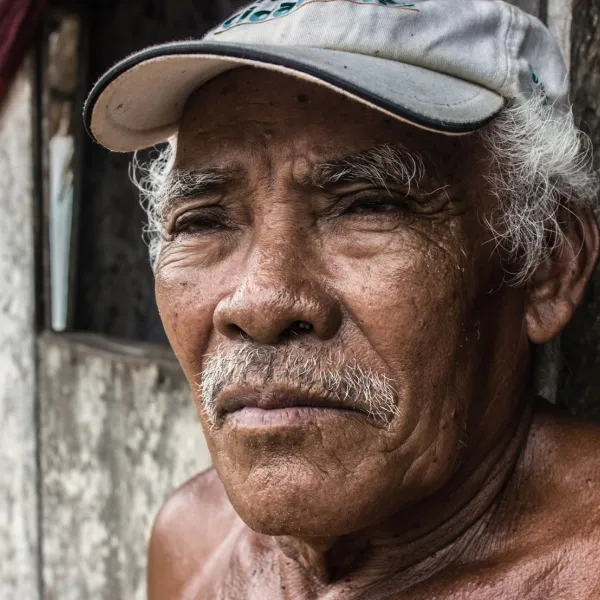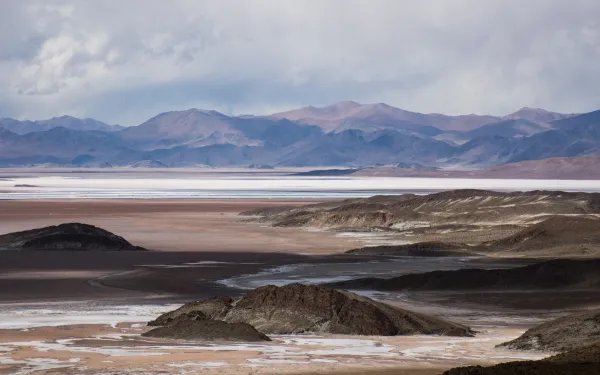
Project
Photo: Maíra Irigaray / Amazon WatchHolding Brazil accountable for the Belo Monte Dam
When fully operational, Belo Monte will be the third-largest dam in the world, constructed in one of the most important ecosystems on the planet: the Amazon rainforest. It sits on the Xingu River in Pará, a state in northern Brazil. The reservoir will cover 500 square kilometers of forest and farmland—an area the size of Chicago.
For the people of the Xingu, construction of Belo Monte has meant loss of access to water, food, housing, work and transportation. At least 20,000 people have been displaced.
The government and construction consortium began to construct the dam without first consulting the people of the region, many of whom are indigenous. They flouted international human rights law, which requires the free, prior and informed consent of affected indigenous communities. Brazil also failed to comply with precautionary measures issued by the Inter-American Human Rights Commission, which were intended to protect the life, health, and integrity of local communities.
Though Belo Monte began operations in May 2016, it is not yet operating at full capacity. In April 2016, a federal court suspended the dam's operating license because the consortium in charge did not complete basic sanitation works in Altamira, the city nearest to and most affected by the dam.
Partners:

Related projects

COP16: To conserve biodiversity, governments must respect indigenous and local knowledge
At the UN Conference on Biodiversity, countries must also make progress in ensuring the participation of indigenous and local communities in decision-making on biodiversity. The energy transition model of the global north implies irreversible impacts for the Andean wetlands and the communities that inhabit them, whose territories overlap with lithium reserves. Ahead of the 16th meeting of the Conference of the Parties (COP16) to the Convention on Biological Diversity (CBD), which will take place from October 21 to November 1 in Cali, Colombia, the Alliance for Andean Wetlands (Alianza por los Humedales Andinos) calls on member countries to respect, preserve and maintain the knowledge, innovations and practices of indigenous and local communities for the conservation and sustainable use of biological diversity. Doing so implies honoring the obligations acquired with the signing of the treaty.In addition, the signatory countries of the convention must make progress, through the presentation of concrete action plans at the national level, in ensuring the participation of communities in decision-making on biodiversity issues, one of the 23 targets of the Kunming-Montreal Global Biodiversity Framework adopted in 2022.One of the goals of COP16 is to review compliance with these targets, aimed at halting and reversing biodiversity loss by 2030.According to the Living Planet Report, Latin America is the region with the greatest loss of biodiversity, as populations of all species show an average decline of 94% and 83% in the case of freshwater species.The Alliance warns of the irreversible impacts that the energy transition model promoted from the global north implies for the Andean wetlands, where some of the most sought-after transition minerals, such as lithium and copper, are found.These ecosystems harbor more than that: they are home to an enormous and unique biodiversity, as well as to local communities that depend on them and that for thousands of years have protected and preserved them, maintaining the ecological balance. Quotes from members of the Alliance for Andean WetlandsLaura Castillo, Coordinator of the High Andean Program at Fundación Ambiente y Recursos Naturales (FARN), Argentina:"To address the biodiversity crisis, it is crucial to transcend the current paradigm of production and consumption, which promotes excessive use of environmental goods and exacerbates the ecological crisis. To this end, it is imperative to promote the reduction of high levels of consumption of natural goods, especially from the global north. Solutions to the climate and biodiversity crises -which are closely related- will inevitably require countries to define their own socio-ecological transitions towards models of life that respect human rights and planetary limits." Vivian Lagrava Flores, Coordinator of Empodérate and the Wetlands, Biodiversity and Water Protection project, Bolivia:"Biodiversity and water should not be assumed as an 'exploitable resource' by the States. As long as this mercantilist view persists, we will have more people affected by mining and sacrificed and, therefore, more biodiversity exposed and at risk of extinction." Verónica Gostissa, attorney and coordinator of the Alianza por los Humedales Andinos project at Asamblea Pucará, Catamarca, Argentina:"It is urgent to address the problem of lithium exploitation in the Puna. It is advertised as 'clean energy', but it is devastating our ecosystems. In Argentina, they intend to turn the Salar del Hombre Muerto into an industrial park, installing more than eight projects in the same territory. In this COP, it is crucial to recognize the irreversible impact generated by extractivism and, from there, to deploy ecosystemic links based on the care of all that is vital." Cynthia Escares, biologist and director of the NGO Defensa Ambiental, Chile:"The climate crisis is an undeniable reality. However, in its name, forms of extractivism disguised as clean energy and equity are being promoted, without recognizing the profound implications of these processes. Projects such as lithium and rare earth mining, essential for batteries and green technologies, are presented as solutions to climate change, but they replicate the same logics of exploitation that have historically devastated territories and communities. This time, not only will we lose the inhabitants of these vulnerable regions, but we are leading the planet and all its biodiversity towards an irreversible collapse." Yeny Rodríguez, senior attorney with the Ecosystems Program at the Interamerican Association for Environmental Defense (AIDA):"The biological and cultural diversity of our region is at risk. After COP16, it should be understood that we can no longer talk about defossilization as the panacea that will save us from the climate crisis. The energy transition towards 'clean energy' also requires the extraction of minerals such as lithium, an industry that in Latin America is already causing the destruction of Andean wetlands and the disappearance of rivers. We are facing an opportunity to move towards the protection of biodiversity and the human rights of the native communities that have cared for the territories since before the existence of our States." Ramón Balcázar Morales, executive director and researcher of Fundación Tantí, Chile:"The salt flats from which South American lithium is obtained are wetlands, territories inhabited by indigenous peoples and communities whose ways of life are key to the conservation of ecosystems that sustain a threatened biodiversity. Faced with the deepening of the polycrisis, we must promote democratic processes that allow us, as a society, to overcome the profound contradiction between the climate agenda based on green growth and the biodiversity conservation agenda. This requires governmental and institutional efforts and will to strengthen and dialogue with communities and social actors in the territories affected by mining and energy megaprojects associated with the energy transition."
Read more
Organizations concerned by Mendoza Supreme Court rejecting their Participation while allowing that of the oil industry in litigation over fracking
The Mendoza Supreme Court’s differential treatment occurred in a lawsuit over the authorization of fracking, or hydraulic fracturing, for extracting oil and gas from the Vaca Muerta formation in the Argentinian province. Civil society groups express concern about the Mendoza Supreme Court’s refusal to receive information about the dangerous impacts of using fracking to extract oil and gas on indigenous peoples and the environment in Mendoza. The Court rejected the participation of seven organizations--including an organization of the Mapuche Indigenous People and both Argentinian and international groups on human rights and the environment--in a case that will impact the regulation of the oil and gas industry in Mendoza.The court has instead shown preference toward the fossil fuel industry, having allowed the participation of several groups representing the interests of oil companies in the same court case.The court is weighing a decision involving the authorization of hydraulic fracturing--also known as fracking--to extract oil and gas from the Vaca Muerta formation in Mendoza. Although fracking has not been widely used in Mendoza, the technique has caused public health and safety risks in other countries because of its impact on the environment.The organizations requested to participate in the case as "Friends of the Court" (amicus curiae). This is a common practice permitted in Mendoza and many countries around the world that allows people not otherwise connected with litigation to share information with the courts in cases that affect the public interest.One justice dissented from the Supreme Court's decision, criticizing that this ruling "is far from the level of listening that ought to demand the judge's attention in the resolution of cases of undoubted social interest, such as the one at issue here." Furthermore, the justice pointed out that "[t]he entities requesting this Court to grant them participation as amicus, have vast experience and specialization in environmental issues."So far, the Supreme Court has rejected the interventions of the following organizations: Organización Identidad Territorial Malalweche (Mendoza); Xumek (Mendoza); Centro de Estudios Legales y Sociales (national); the Interamerican Association for Environmental Defense (international), the Center for International Environmental Law (international); Earthjustice (international) and the Environmental Law Alliance Worldwide (international). Statements from the organizations Ana Laura Piccolo, executive director of XUMEK:"At Xumek, we are concerned by the provincial Supreme Court’s repeated rejections of the participation of civil society organizations through the figure of the 'Friend of the Court.' The organizations that have come forward to collaborate have established experience in the subject matter of the case and we make our contributions from a serious and objective perspective, in accordance with the technical and legal knowledge and expertise we possess. In addition, we have participated as amicus curiae in numerous judicial proceedings, both local and international". Ñushpi Quilla Mayhuay Alancay, attorney in charge of the Indigenous Peoples Area of XUMEK:"As expressed in the dissenting vote, ignoring all the voices of civil society in a case of high social complexity affects the dialogue between the judiciary and the citizens, thereby weakening the democratic process in cases of social interest where the human rights of society can be affected". Erika Schmidhuber, attorney with the Center for Legal and Social Studies (CELS):"We consider it essential that the province complies with international human rights standards on free, prior and informed consultation with indigenous peoples for development projects in their ancestral territory, regardless of whether or not that territory is formally recognized. The Argentine State has already been condemned internationally for not complying with these standards. It is necessary for the Mendoza court to evaluate the arguments we have presented as they reflect the obligations that Mendoza must comply with." Jacob Kopas, attorney at Earthjustice:"Strong scientific evidence from other countries shows that fracking generates serious contamination risks, particularly by leeching toxic chemicals into nearby water supplies. It is essential that the Supreme Court of Mendoza take this evidence into consideration along with the support for fracking it has received from groups that profit from oil extraction." Sofía Barquero, attorney with AIDA's Ecosystems Program:"Our interest in this case stems from our desire to ensure that environmental protection and the rights of indigenous peoples are an integral part of any decision that may affect these communities. In that sense, we respectfully call on the Court to reconsider its decision and allow for the inclusion of civil society voices in this judicial process. We trust that the Court will take into consideration the importance of listening to all stakeholders in this case." Upasana Khatri, attorney at the Center for International Environmental Law (CIEL):"Fracking poses long-term environmental and health hazards that outlast production. It is essential that the Court hears from civil society experts on the evidence of such harms and the legal duty to prevent them - not just from industry actors with a stake in fossil fuel production - to ensure an informed decision on the risks and regulation of fracking in Mendoza."Press contactsOrganización Identidad Territorial Malalweche, Werken Gabriel Jofre, +54 2604592679XUMEK Asociación para la promoción y protección de los derechos humanos, Ñushpi Quilla Mayhuay Alancay, +54 9 2616807798CELS, Martina Noailles, [email protected], +54 9 11 6562-6566AIDA, Víctor Quintanilla, [email protected], +521 5570522107Earthjustice, Jacob Kopas, [email protected], +1 5862924603CIEL, Press Office, [email protected]
Read more
AIDA petitions Argentine court for protection of human rights in lithium mining case
In a legal brief supporting the litigation of the indigenous communities of the Puna in Argentina, we ask the Court of Justice of Catamarca to cancel the permits for two mining projects to avoid irreversible environmental impacts on the territory of the Salar del Hombre Muerto. We also ask that it order a cumulative and comprehensive environmental impact assessment that meets international standards and guarantees the participation of the communities. In support of the lawsuit filed by the Atacameños del Altiplano Indigenous Community, the Interamerican Association for Environmental Defense (AIDA) filed an amicus curiae or "friend of the court" brief before the Court of Justice of Catamarca, requesting that the national government and the government of the province of Catamarca, in accordance with their international obligations, protect the rights of local communities against the cumulative environmental impacts of lithium mining projects in the territory and watershed of the Salar del Hombre Muerto."The accumulation of lithium mining activities in the Salar del Hombre Muerto has exacerbated water stress in the province and today threatens to affect the health of indigenous communities due to the use of large quantities of water and polluting chemicals," said Yeny Rodríguez, Senior Attorney at AIDA. "In application of the principles of prevention and precaution, it is imperative that the State take measures to avoid further impacts; if it fails to do so, it may incur international liability for the damages caused."The brief provides grounds for the application of justice and for the defense of the rights to a healthy environment, to water and to the life project of the communities. The document shows that the national and provincial governments have an obligation under international treaties and standards, such as the American Convention on Human Rights, the Convention on Biological Diversity, and the Convention on Wetlands, among others, to use an environmental assessment that addresses comprehensive and cumulative impacts to authorize existing, proposed, and related mining projects.The writ was filed as part of the amparo action filed by the Atacameños del Altiplano Indigenous Community in August 2021. In it, they asked the Court of Justice of Catamarca to revoke the authorizations granted by the environmental authorities to the projects "Fénix Project Expansion" of the company Livent and "Sal de Vida" of the company Galaxy Lithium S.A., until a proper environmental impact assessment is carried out.In a decision released last March 13, the court ordered the provincial government, as a precautionary measure, to refrain from issuing new permits until a "cumulative and comprehensive" environmental impact study is conducted for all lithium mining projects being developed in the area, and to guarantee free access to information and free, prior and informed consultation with communities for all projects. However, the court did not accept the request to stop lithium mining in the area, so the socio-environmental risks remain.In this sense, in order to protect the ecosystem and not irreparably affect the life project of the indigenous peoples, AIDA presented arguments to the Court of Justice of Catamarca in support of the communities' requests:In application of the international environmental principles of prevention and precaution, revoke the permits for the projects identified in the lawsuit and for all projects in the Salar Basin until an environmental assessment is carried out in accordance with international law.Order the competent authorities to carry out a cumulative and comprehensive environmental impact assessment, respecting at all stages the right to consultation or consent, as well as the right to timely and effective environmental participation of the Atacameños del Altiplano Indigenous Community. "AIDA reiterated before the Court that the Inter-American Court of Human Rights has ruled that the Environmental Impact Assessment is the measure that guarantees the subsistence of indigenous communities in the face of the restrictions imposed by the concessions granted in their territory," said Rodríguez.The brief points out that in this case — given that lithium mining and other projects have already caused serious environmental degradation and affected the water carrying capacity of the ecosystem, in addition to jeopardizing the community's livelihood project — the state had an obligation to conduct a cumulative and comprehensive environmental impact assessment.Due to low rainfall and water evaporation, the Salar del Hombre Muerto — an Andean wetland located in northwestern Argentina, between the provinces of Catamarca and Salta — has a negative natural water balance, which has been exacerbated in the last 27 years by lithium mining. This activity requires the extraction of large quantities of brine (water with a high salt content) and fresh water (surface and groundwater).The region of the Salar Basin has been inhabited for more than 10,000 years by indigenous communities who have a special relationship with the environment that guarantees their individual and collective survival, their culture and their traditions. As a result of lithium mining, their members have had to change their traditional practices and have also suffered water shortages and significant animal losses.The Fénix mining project has diverted the Trapiche River to the point of drying up its last stretch before it reaches the salt flats. And the expansion of mining activities in the area threatens to dry up the Los Patos River as well.In the development of the projects mentioned in the lawsuit, the companies did not provide information to the communities, did not hold public hearings with their participation, and did not carry out a process of free, prior and informed consultation.Press contact:Víctor Quintanilla (Mexico), AIDA, [email protected], +521 5570522107
Read more